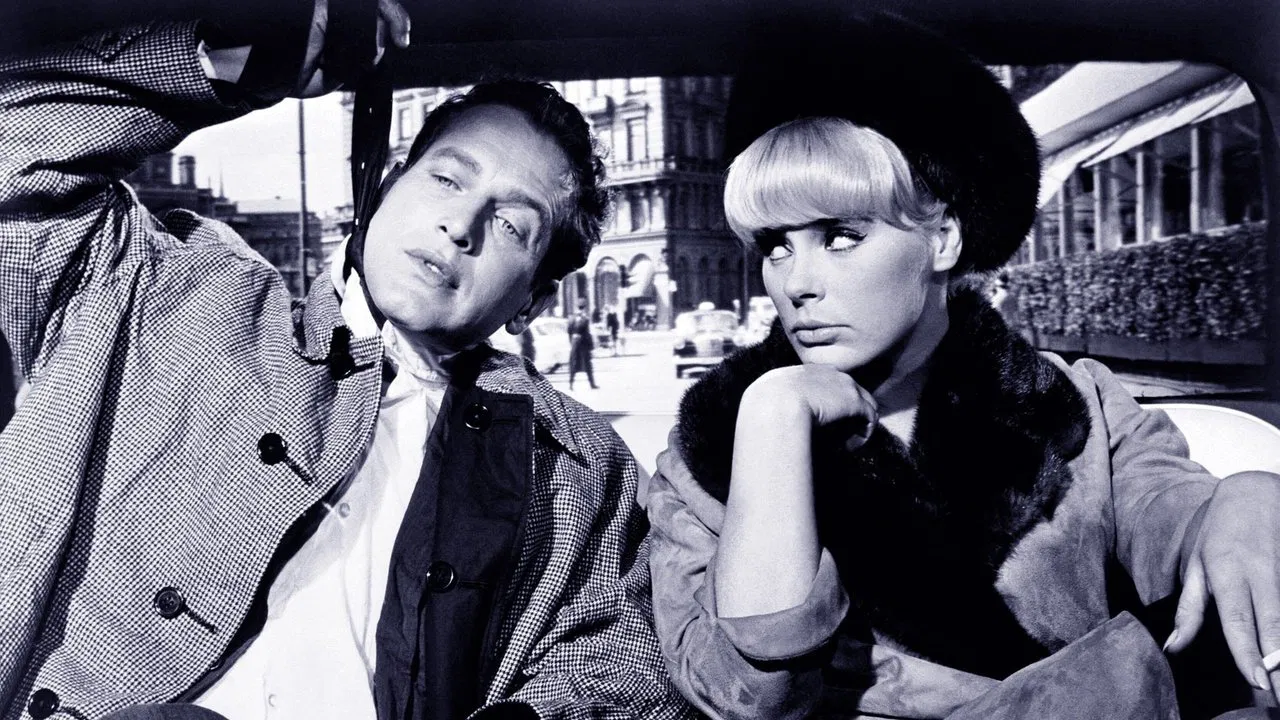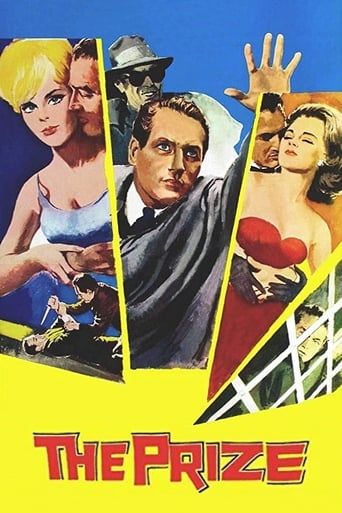

What a freaking movie. So many twists and turns. Absolutely intense from start to finish.
... View MoreThere is just so much movie here. For some it may be too much. But in the same secretly sarcastic way most telemarketers say the phrase, the title of this one is particularly apt.
... View MoreIt is neither dumb nor smart enough to be fun, and spends way too much time with its boring human characters.
... View MoreWorth seeing just to witness how winsome it is.
... View MoreTo say that this is an Alfred Hitchcock movie made by Mark Robson is not a put down, it's just a fact of life. Look at the framing and you'll know immediately that we're not in Hitchcockian territory. But the the Hitchcockian ingredients are there even if not mixed or cooked at the wrong temperature, or something. Paul Newman, absolutely gorgeous and funnily enough he'll make a spy film with Hitchcock set in Sweden during the Nobels. Elke Sommer is like an imitation Hitchkcock ice blonde made in Germany. Diane Baker was the brunette in Hitchcock's Marnie and she's a real delight. Edward G Robinson, of course, always a pleasure but then Mr Robson casts Micheline Presle, Micheline Presle from "Devil And The Flesh" and ignores her. She is framed as if Robson didn't know who she was. Another unforgivable bit of business, Sergio Fantoni's Italian mamma. What was he thinking. All that aside. It's entertaining and Paul Newman can take me anywhere, anytime.
... View MoreThe Nobel prize in literature is being awarded to the brash drunken womanizing author Andrew Craig (Paul Newman). The Swedish Foreign Ministry assigns Inger Lisa Andersson (Elke Sommer) as his minder. Dr. Max Stratman (Edward G. Robinson) is another winner coming to Stockholm with his young niece Emily (Diane Baker). He's got a rendezvous with mysterious Hans Eckhart. Dr. John Garrett (Kevin McCarthy) is forced to share his prize with his competitor Dr. Carlo Farelli (Sergio Fantoni). Dr. Claude Marceau (Gérard Oury) and his disgruntled wife Dr. Denise Marceau (Micheline Presle) are awarded the prize for chemistry. He's brought along his mistress. Craig meets Stratman in a very knowing and friendly manner. Eckhart wants Stratman to defect. When he refuses, Stratman is kidnapped. In the second meeting, Craig reveals that he's been making his living writing mystery novels under a pseudonym and Stratman doesn't seem to be the same person. Craig gets a mysterious call and finds a dead body. However the body disappears and nobody believes him.This starts like a sex comedy. Newman comes in after 15 minutes and the tone is extremely light. Then the mood becomes more serious with the kidnapping. I would prefer the mood stay serious from the beginning. The movie oscillates between a light comedy and a dark thriller. Newman delivers some fun comedy. The character should be more serious. The movie works much better as a paranoia filled Hitchcockian thriller. I would also rather have the mystery be kept a secret. There is no room for any twists. The movie reveals all the good stuff right away. This movie really struggles with dueling tones.
... View MoreJust weeks before traveling to Stockholm in the summer of 1964, we had seen the movie "The Prize" and the distance from the level where the killer was flipped downwards onto the statue with the spear or sword which impaled him was FRESH in the mind. The movie had shown the distance from the beginning of the fall to the impalement as being about straight down. Actually, the distance the falling body would have had to have covered was more like 40 to 60 feet. Through the years, we have seen no comment on this error. Tonight (12-8-09) we saw the movie again on TCM for the first time in 46 years and again, we saw the "photographic filming error". The impalement was viewed with glee since the killer had almost done away with Paul Newman . . . but, the depiction of the disposal of the Russian "hit man" could have been authentic. Advice: go to the scene in Stockholm today and assess the distance under consideration . . and draw your conclusions. S. Brewer
... View MorePaul Newman and Edward G. Robinson struck me as a curious combination, so I chose to watch "The Prize" not having any idea what it was about.This story about a number recipients in Stockholm about to receive their Nobel Prize, will show how their lives are intertwined in the days prior to the annual event. It is a mystery story that I almost gave up on after a handful of minutes -- my own fault for being impatient. A flower takes time to blossom, and so does a movie that is over 40 years old. But I am glad I didn't switch it off.The intrigue does start to capture after a while and the insights the viewer is granted are satisfying, while our hero is denied these sensations as no one believes him. The 21st century participant of this drama may find parts predictable, but it is very enjoyable, even if a little dated.Paul Newman gives everything you would expect. And you could say the same for Elke Sommer, since I wouldn't expect anyone to describe her as a terrific actor -- good performance for her, and she always wonderful to look at. I would have enjoyed more screen time by Edward G. Robinson in this role that had him more timid than I am accustomed to.I recommend this movie to everyone that enjoys these actors, although one viewing is probably enough.
... View More